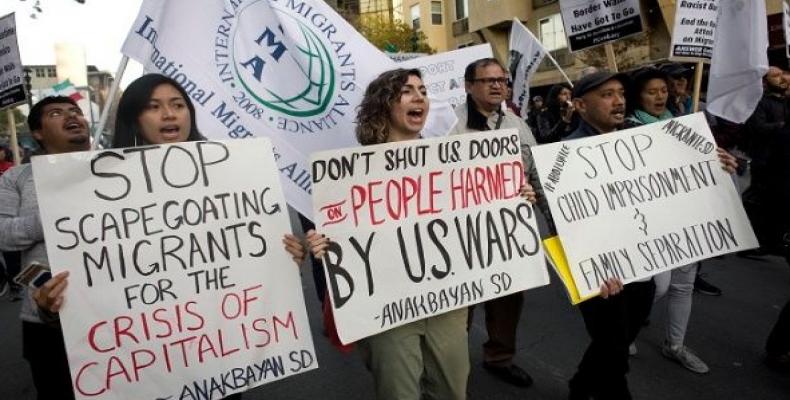Washington, August 17 (RHC)-- U.S. President Donald Trump's new plan to limit migration by denying visas and permanent residency to hundreds of thousands of people receiving public help will end in sicker children, diseases and homelessness, according to migrant advocates and the federal government’s analysis.
According to the new rule revealed this week, the administration will refuse temporary or permanent visas to applicants if they don't have a certain income level or if they receive public benefits such as welfare, food stamps, public housing or Medicaid.
“This will result in millions of kids losing access to healthcare, housing and nutrition,” said Kristen Torres, director of child welfare and migration for First Focus on Children, a bipartisan group that advocates for pro-child policies before the federal government.
Fear over their visa status has influenced many immigrants to refuse services they are legally entitled to, whether from government sources or private charities. In Houston for instance, the Episcopal Church outreach center who took part in the federal food stamp program saw a sharp drop in the number of immigrants seeking its aid. The number of people served by the center fell by 21 percent this year, the group said.
At the same time, the church noticed a 67 percent surge in the number of people visiting its food pantry, which is a sign that those needing assistance were trying to find alternatives to government food aid, turning instead to the less risky food pantry, according to the group.
The federal government estimates that some 382,000 immigrants could see their status reviewed when the rule comes into force Oct. 15, but advocates suggest that the real number could be much higher, with the policy aiming to reduce immigration into the country by as much as half.
The Department of Homeland Security admitted last year that consequences of the policy are likely to involve increased obesity and malnutrition, especially for pregnant or breastfeeding women, infants and children, increased prevalence of communicable diseases and increased poverty.
“The real tragedy of this is that young kids are going to be really penalized,” said Lisa David, chief executive of Public Health Solutions, a non-profit organization funded mostly by New York City that provides social services such as enrolling women and children in food programs and health insurance.
Trump, who made of migration-curbing one of his presidency main priorities, presented the rule as an effort to prevent people from becoming “public charges” and “depending” on the government. The 837-page rule could be the adminstration's most drastic to target the nation's immigration system, experts have said. The new rule is derived from the Immigration Act of 1882, which allows the U.S. government to deny a visa to anyone likely to become a "public charge."
Most immigrants are ineligible for the major aid programs until they qualify for green cards, which grant legal permanent residence status. However, the new rule announced in the Federal Register by the Department of Homeland Security expands the definition of a public charge and stands to disqualify more people.


